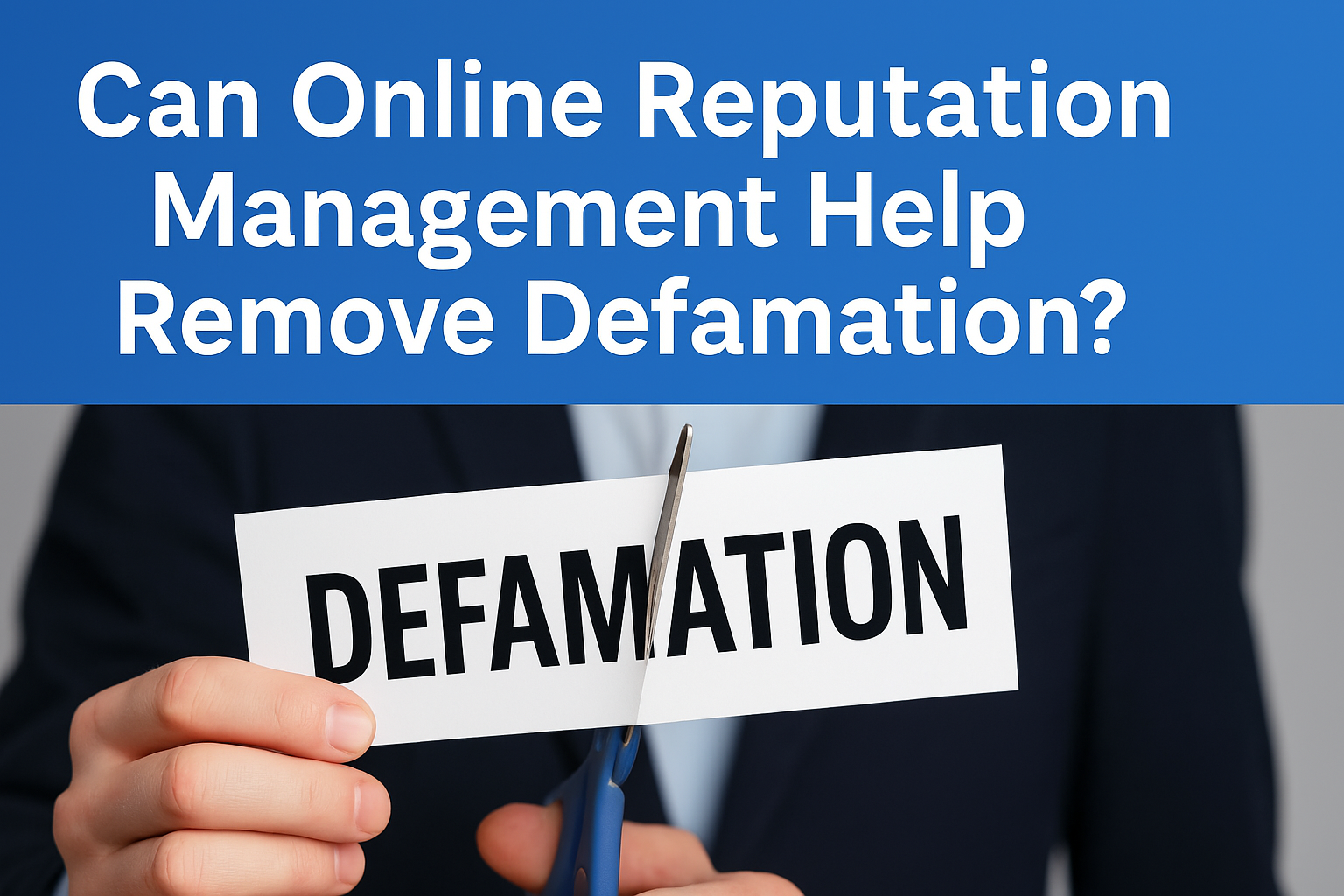Table Of Content
The Growing Threat of Online Defamation
False accusations and malicious content posted on the internet can spread like wildfire. Whether it’s an anonymous Reddit thread, a vindictive Yelp review, or a slanderous blog post, the consequences can be devastating. Victims often wonder whether there’s a way to remove online defamation or clean up their search results.
The short answer? Yes—if done strategically.
What Is Online Defamation?
Online defamation occurs when false statements published on the internet cause harm to an individual’s or business’s reputation. This includes both libel (written defamation) and slander (spoken, often transcribed).
Common Examples of Online Defamation:
- Fake Google or Yelp reviews
- False allegations on forums or social media
- Defamatory press releases or blog posts
- Mugshot websites posting arrest records long after charges are dropped
These attacks not only damage reputations but can also influence employment opportunities, customer trust, and personal well-being.
Why Reputation Management Matters
Online reputation management (ORM) is more than just vanity—it’s a defense mechanism. ORM specialists use SEO, legal coordination, and content creation to repair, protect, and improve your online presence.
How ORM Helps Remove Online Defamation:
- Suppress negative content through high-ranking positive assets
- Submit takedown requests to webmasters and platforms
- Coordinate legal strategies with attorneys and compliance teams
- Monitor the web for future defamatory attacks
Strategies for Defamation Cleanup
1. Identify and Document the Defamatory Content
Before any removal or suppression strategy can begin, collect evidence:
- URLs
- Screenshots
- Author names or usernames
- Timestamps
You can use tools like Wayback Machine to archive pages that may be deleted later.
2. File Takedown Requests
Not all defamatory content qualifies for immediate removal. However, certain platforms offer reporting systems for violations of terms of service, hate speech, or privacy breaches.
3. Consider Legal Options
Sometimes, legal intervention is necessary, especially for severe defamation cases. Legal professionals may issue:
- Cease and desist letters
- DMCA takedown notices
- Defamation lawsuits seeking damages
Keep in mind, courts typically require proof of falsity, reputational damage, and publication to third parties.
4. Push Down Negative Content with SEO
ORM experts optimize your name or business for positive search results. This strategy is ideal when the defamatory content cannot be removed. The goal is to bury harmful links deep in the search engine results pages (SERPs).
Common SEO Suppression Tools:
- Authoritative guest posts
- Press releases
- Social media profiles
- Personal blogs and websites
- YouTube videos
With enough optimization, these assets can outrank negative content.
5. Enlist Reputation Management Services
Fighting defamation alone can be overwhelming. That’s where Defamation Defenders comes in. We offer custom strategies to help:
- Remove defamatory content when possible
- Suppress it with SEO when necessary
- Restore your good name online
👉 Get your free case review here
Real-World ORM Success Cases
- An executive slandered on Reddit: ORM efforts suppressed 12 negative threads and promoted a Forbes interview to the #1 result. Learn more about Reddit Post Removal.
- Small business hit with fake Yelp reviews: ORM helped remove 8 out of 10 reviews and built new positive listings on alternative platforms.
- False arrest reports showing in Google search: With advanced SEO and legal coordination, ORM buried the mugshot page from the first 5 pages of search results. Learn more about Mugshot Removal.
Frequently Asked Questions
It varies. Content may be removed within days via platform reporting. Suppression strategies typically take 2–3 months.
Yes. Legal actions can result in financial damages if reputational or economic harm is proven.
While not ideal, SEO suppression is highly effective in hiding negative results when removal isn’t possible.
Subpoenas may be used to unmask anonymous posters. Legal support is essential here.
It significantly reduces risk by strengthening your online presence and monitoring for new threats.



